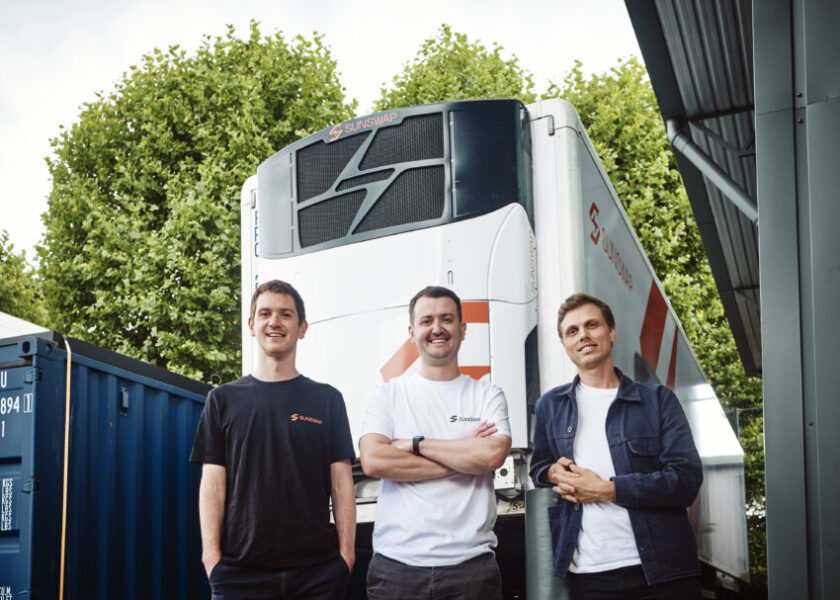2m small firms don’t think cutting their carbon affects climate change
By Anna Jordan on Small Business UK - Advice and Ideas for UK Small Businesses and SMEs Most microbusiness owners also don't fully understand the term 'net zero' or where to go for help to reduce their carbon footprint The post 2m small firms don’t think cutting their carbon affects climate change appeared first on Small Business UK.

By Anna Jordan on Small Business UK - Advice and Ideas for UK Small Businesses and SMEs

Millions of microbusiness owners in the UK don’t believe that reducing their carbon emissions will make a difference to climate change.
Start-Up Loans, part of the British Business Bank, carried out the research. It also found that 50 per cent find the language, terminology and information around sustainability to be inaccessible. Meanwhile, 78 per cent don’t fully understand the term ‘net zero’ and 72 per cent don’t fully understand the term ‘carbon neutral’. Over a third (67 per cent) have never looked for information on reducing their carbon footprint and 46 per cent don’t know where to go for information. Half (50 per cent) would value having information that would tell them whether reducing carbon emissions would make good financial sense for your business.
Other research suggests that it makes economic sense for microbusinesses to reduce their carbon footprint. An independent survey from Hearts & Science found that 52 per cent of consumers now take a brand’s eco credentials into account when choosing a product while one in five decided to stop shopping with a brand because of their environmental practices.
How do other microbusinesses feel about cutting their carbon?
Three microbusiness owners of sustainable brands weigh in on what they think of reducing their climate impact.
Jeroo Doodhmal, founder of Pip and Henry, a sustainable children’s shoe company, said:
“Our mission is to help children take their first steps into the world more mindfully. While we create sustainable products, we do have an international supply chain which results in a greater carbon footprint than if we were entirely UK-based. Because a lot of our sustainable materials such as pineapple leaves and coconut fibres are sourced abroad, that’s likely to be an ongoing challenge.”
“There is a lot of energy and ambition among small business owners to make their operations sustainable and net-zero, but I think it’s fair to say that in practice it’s more complicated to implement both at the same time without consistent support and access to the right information.”
Ben Caspary, founder of Booheads, a manufacturer of bamboo electric toothbrush heads, said:
“I created Booheads in November 2020 to bring sustainably sourced, biodegradable bamboo toothbrush heads to customers seeking an alternative to the disposable plastic versions that end up in landfills. Creating sustainable products and growing a sustainable business are very different things, but the key to achieving both is applying a thoughtful, long-term view to your decision making.
“Supply chain and production costs are make or break for small businesses, and the associated carbon footprint is often beyond an owners control. As an e-commerce business I can’t control whether our courier partners use fleets of low carbon or electric vehicles, for example. Needless to say if they did then that would be welcomed, but what matters to me managing the growth of Booheads is that our customers receive orders on time and at a cost that keeps us on an upward trajectory.”
Kate Barnard, founder of Enjoy the Air, which provides data on air quality said:
“I founded Enjoy The Air in the height of the pandemic, December 2020, to primarily address outside air quality as it links to ten of the 17 UN’s Sustainable Development Goals. We support cities by providing data and analytics, specifically in the areas of air quality and mobility.”
“When you’re starting a business for the first time you’re learning everything at once. You need guidance to make the right long-term decisions and to choose the options that enable you to grow ever greener. The first step we need to take as a business community is accepting that for as long as people are presented with bad options and inconsistent guidance, we can’t hold them solely accountable for their decisions.”
To help small businesses lower their carbon emissions, The British Business Bank has launched its #GreenToGrow campaign. It aims to demystify and alert smaller businesses to the commercial benefits of investing in decarbonisation. This includes free online resources include the ‘Green Decoder’, an online guide co-created with Nottingham Business School, Nottingham Trent University to help smaller businesses understand the terminology around decarbonisation.
Read more
Environmental checklist for small businesses
The post 2m small firms don’t think cutting their carbon affects climate change appeared first on Small Business UK.






















